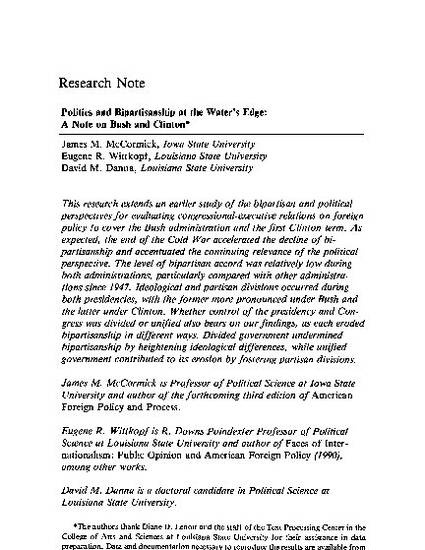
This research extends an earlier study of the bipartisan and political perspectives for evaluating congressional-executive relations on foreign policy to cover the Bush administration and the first Clinton term. As expected, the end of the Cold War accelerated the decline of bipartisanship and accentuated the continuing relevance of the political perspective. The level of bipartisan accord was relatively low during both administrations, particularly compared with other administrations since 1947. Ideological and partisan divisions occurred during both presidencies, with the former more pronounced under Bush and the latter under Clinton. Whether control of the presidency and Congress was divided or unified also bears on our findings, as each eroded bipartisanship in different ways. Divided government undermined bipartisanship by heightening ideological differences, while unified government contributed to its erosion by fostering partisan divisions.
Available at: http://works.bepress.com/james-mccormick/19/

This article is published as McCormick, James M., Eugene R. Wittkopf, and David M. Danna. "Politics and bipartisanship at the water's edge: A note on Bush and Clinton." Polity 30, no. 1 (1997): 133-149. DOI: 10.2307/3235323. Posted with permission.